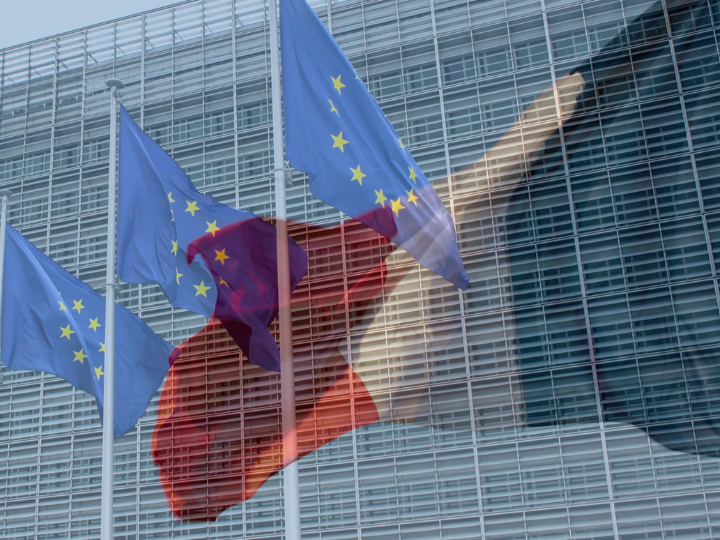by Clara Bauer-Babef
With no majority emerging in the French parliament following the 7 July legislative elections, President Emmanuel Macron has to deal with opposition parties trying to interfere in the appointment of a future French commissioner.
Visiting Brussels on Wednesday (10 July), Jean-Luc Melenchon, leader of France Insoumise (LFI, The Left), said that the Nouveau Front Populaire (NFP) alliance of leftists was “best placed” to choose the next French Commissioner.
Defying all the polls, the NFP came out on top in the second round of the legislative elections, followed by the Ensemble, the coalition of Macron, and the far-right Rassemblement National (RN).
“In some countries, one would be bold enough to think that the first group in a National Assembly is best placed to appoint the commissioner. But presidential monarchy (…) is akin to the old regime, where the only rule was the prince’s pleasure,” Melenchon said in Brussels.
France is going through unprecedented political instability, with the name of the prime minister and the composition of the future government still unknown, important deadlines are approaching in Brussels.
The new members of the European Parliament are expected to approve the reappointment of Ursula von der Leyen as European Commission President, on Thursday 18 July. The 27 European Commissioners will then be appointed, one from each member state.
At the European Council on June 27, Macron told his counterparts that he wanted to reappoint Thierry Breton, currently European Commissioner for the Internal Market, since 2019.
But the President’s legitimacy to choose a future European Commissioner has been called into question, by his political opponents, since the dissolution of the National Assembly on the evening of the European elections on 9 June.
“Emmanuel Macron is seeing himself into a victory he can’t achieve, so he won’t be able to appoint Mr Breton,” said the leader of the Rassemblement National (RN), Marine Le Pen, on Cnews, the day after the European Council.
“It is the prime minister’s prerogative to appoint the European Commissioner,” she added.
At the time, the polls were predicting a landslide victory for the far-right and, in the event of an absolute majority in the National Assembly, the RN had envisaged placing the party’s president, Jordan Bardella, at Matignon. (The official office building of France’s prime minister).
However, there is nothing in the French Constitution to clearly indicate who should appoint a commissioner. However, it is customary this appointment is made by the president, not the prime minister.
“Foreign policy is an area reserved for the president. It seems logical that he should want to keep control of the appointment of the European Commissioner,” Pascal Lamy, former European Commissioner and President of the Institute of Jacques Delors, told Euractiv.
The choice of Breton seems all the more logical given that the current commissioner could see his portfolio expanded, even if “the final choice will depend on the new government,” concluded Lamy.
*first published in: Euractiv.com




 By: N. Peter Kramer
By: N. Peter Kramer
